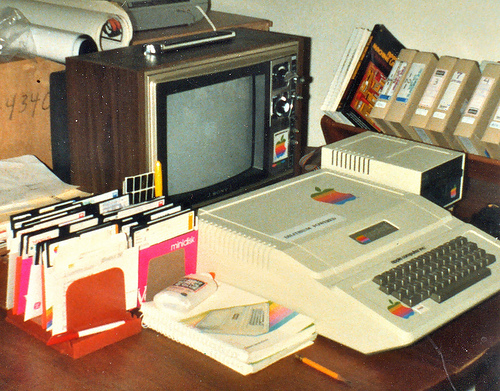
 Feb 23, 2023
Feb 23, 2023Say Goodbye to Paper Receipts for Tax
Instead of stuffing their wallets and glove compartments with paper receipts for tax, 1099 contractors and freelancers we can now experience a sense of liberation. Keeping track of these paper receipts is no longer necessary. We all know how easy it is to misplace them, tear, or smudge them. And by tax time, much of what was once written on those pieces of paper has likely faded away anyway.
But dealing with this problem isn’t just about convenience – it’s about accuracy too.
There is an enormous focus on receipts when dealing with taxes, as they are one of the only documents the IRS considers to be a good supporting record.
Knowing which deductions you are eligible to claim on your tax returns, even when you do not have any associated receipts, is crucial if you want the largest tax refund. Knowing what receipts to keep and what ones to throw away can help you maximize your tax refund while also minimizing the amount of paperwork you need to save for tax time every year.
But you do not need to submit your receipts when filing a tax return, and you only sometimes need them for calculating deductions. In addition, at the time of filing your taxes, you do not need any documentation or receipts to show evidence of tax deductions.
In fact, saving tax filings and receipts for tax at least three years is recommended. Three years is a long time to store your tax records, so scanning the documents can make them easier for you to access in the future. You could store tax records in that location for 3 years, as the IRS recommends, or you can share directly with your accountant if needed.
IRS stances on paper receipts
When it comes to paper receipts and tax deductions, freelancers often believe that retaining them is a must. However, the IRS has clarified its stance on this. To get the facts straight, we’re taking a closer look at the IRS regulations.
According to the IRS, you should keep records of business-related expenditures that specify the following:
-The item purchased
-The date of purchase
-How much was spent in total
Surprisingly enough, there’s no requirement for physical receipts. Instead, they encourage people to switch to electronic information management as it has become more standard in today’s tech-infused world rather than continuing with traditional paper methods. This directive from an organization not typically known for its progressive nature makes its message clearer to keep digital records instead of paper.
You will need receipts if you are audited (which can occur as long as 6 years after your taxes are filed). You should save your receipts as long as it takes an auditing body, such as the IRS or your state’s Department of Revenue, to review them. In addition, you should save receipts for tax anything that you plan to write off when filing taxes for your business.
Remember, with PriorTax’s Dedicated Tax Professionals. You can keep track of receipts for tax and expenses in one place to be more prepared come tax time.
Tips for keeping purchase records and receipts for tax deduction
When it comes to taxes, record-keeping is essential. You can provide the IRS with all the necessary documentation in a couple of ways: by using your credit card statements and bank statements. These two resources will give you crucial data such as what was purchased, when it was bought, and at what cost. Additionally, Keeper automatically scans accounts for tax deductions and creates records for users accordingly.
Depending on the transaction, IRS has several types of records considered valid evidence or receipts for tax. Only if there is an Internal Revenue Service (IRS) tax audit would you need proof for expenses reported on a tax return.
Suppose those receipts are for business expenses, and you wish to claim those receipts as deductions when filing a tax return. In that case, those are considered business records and must always be available to be examined by the Internal Revenue Service (IRS).
Your bank statements and voided checks are a great place to start, provided you can still access those documents. If you do not have the original receipts, other acceptable records include cancelled checks, credit card statements, written notes that you made, calendar notes, and photographs.
The IRS is required by law to accept digital forms of evidence of your write-offs, including bank statements and credit card statements. The IRS accepts credit card statements as evidence for tax write-offs (here’s the best app for tracking taxi receipts).
What about cash purchase records for tax deduction
Interestingly, regarding cash purchases, it is not necessary to have a receipt as long as the amount purchased is “reasonable and ordinary.” This principle is called the “Cohan Rule” and derives its name from a famous court case. However, as a general guideline, keeping your receipt when spending more than $75 in cash is advisable. This would be particularly prudent in expense cases, such as taking multiple clients out for lunch at an upscale restaurant.
Recommendations in preparing for audits
In the event of an audit, don’t be alarmed. Even though you may have gone paperless, the IRS legally must accept digital forms of proof for your deductions, such as bank and credit card statements. So even when you neglect to record a cash expenditure over $75, digital sources, including emails and calendar entries, are alternative verification methods.
Tags:
Leave a Reply
Your email address will not be published. Required fields are marked*


Don’t Miss Any Updates
Sign up with your email to receive latest updates.





 admin
admin No Comments
No Comments